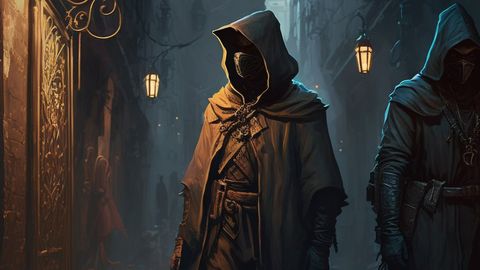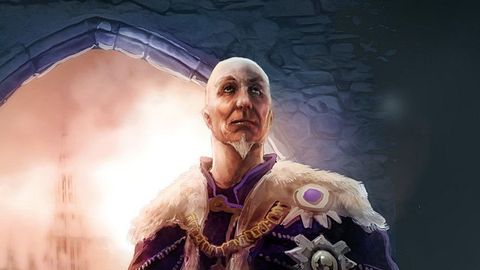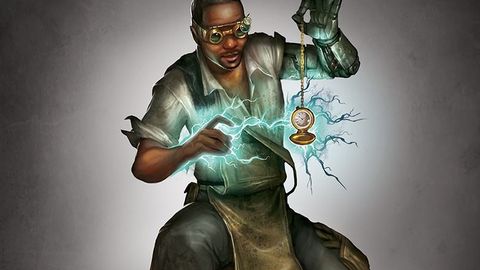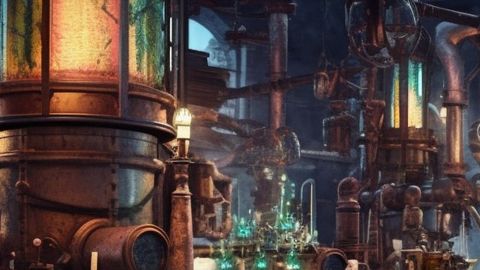Sentra is divided into three districts separated by the rivers Aniene and Oenus. The districts are further broken down into wards, and then neighborhoods.
Palatial District
Tiberim District
Whitestone District
Ward to ward
Sentra is an enormous city. Traveling on foot can take some time. Walking across a ward takes 30 minutes. Going from one ward to a neighboring ward takes 30 minutes. For speedier travel, a carriage can be rented to move through the streets.
The Rivers
The rivers Oenus and Aniene flow by the city. The rivers flow from east to west, with ships making deliveries from further inland. Travel back upriver isn't as common, and usually occurs over road instead.
Streets
Wide streets run through Sentra, wider and cleaner than the muddy roads found in most towns. They are used as the main thoroughfares of traffic going in and out of the city, as well as pedestrians and carts moving within the city. Most streets have lighting along the side, commonly mundane torches. Richer neighborhoods like those of Hightower Ward are lit with bright Arcstone-powered lanterns called arclights. These wide streets connect the three districts, and most of the prominent wards. Smaller, more narrow streets branch off, eventually loading to twisting alleyways, especially in the poorer areas of the city.
The largest street is the Promenade, which is thirty feet wide, with five feet on each side devoted to foot traffic. It runs from the eastern edge of the city through Cornerstone to the first gate into The Prominence. It is lined with markets and small parks, and becomes the city's most popular parade route on holidays, especially the Emperor's birthday.
Levitators
The tall towers of the Palatial District would be difficult to climb without the aid of magical levitators. These levitators allow for quick vertical travel between the different levels of the towers. Although typically used just for passengers, some towers have larger levitators for cargo and freight.
Crime
Under the laws of the Sentran Empire, crime takes many forms. Any sort of theft is illegal, including "identity theft"—the use of illusion or other magic to impersonate someone with the intent to cause harm. Assault, murder, and fraud will all land someone in hot water. Other activities walk the edge of legality. Gambling and prostitution are legal, but these industries are heavily taxed and regulated. Likewise, smuggled goods include illegal merchandise such as drugs and mystical explosives, but also heavily taxed goods. Slavery is legal and common, especially in an area as densely populated as Sentra.
Although crime occurs throughout the city, it is most apparent in the western side of the Whitestone District. The Imperial Watch has a minimal presence in these wards, which are the easiest places to sell stolen goods or to hire an assassin. Of course, they're also good places to get mugged.
Sentra is home to a large number of minor gangs and independent criminals. Even so, most criminal activities in the city come under the purview of one of the larger criminal organizations: the Cornys Family, Shadowlords, and Hammerfall.
Punishment
Long-term incarceration isn't a common form of punishment. Most prisons are temporary holding cells, keeping criminals contained until a case can go to trial. If a prisoner is deemed too dangerous to be allowed to roam free, they are usually executed. There is only one situation in which an extended prison sentence would be warranted: If the prisoner cannot be allowed to go free and if his death would have major repercussions, such as the death of a foreign ambassador. A lengthy prison sentence could also occur if a trial fails to resolve doubts about the crime. The typical imperial prison contains ten separate cells, large enough for 8 prisoners each. Spellcasters or other persons considered to be a high escape risk are chained to the wall, and sometimes gagged. For more dangerous prisoners or for holding prisoners for extended periods of time, the Keep of Order is used instead.
Fines are the most common form of punishment used by the Vigilant courts. The fine is based on the nature of the crime, but the magistrate has leeway to raise the amount of the fine to ensure that it actually serves as an effective punishment. If a convicted criminal can’t afford to pay a fine, he is assigned to work off his debt in a chain gang. There are a number of imperial workhouses throughout the city.
Repeat offenders are often marked with a symbol that warns others about their criminal tendencies. In the past, these marks were made with branding irons, but newer arcane knowledge allows the brands to be magically placed. Marks are either placed on the forehead or on the back of the right hand, and guards often demand that suspicious strangers remove their gloves and show the backs of their hands. A criminal that has shown themselves to be an unfit member of society, but not worthy of execution, is branded as an outlaw and stripped of their citizenship. As an outlaw, anyone may do anything they like to him without fear of legal retribution.
Law
The Imperial Watch is the overarching organization that enforces the laws of the city. Unfortunately, the Watch is riddled with corruption, from the commanding officers down to the patrols. There are a few dedicated guards who truly want to protect the innocent. But bribery runs rampant, and the watch has a way of never showing up at the same time as the Cornys Family. And aside from the general problems of greed, cowardice, and corruption, the watch commanders focus their forces on protecting the wealthy and powerful citizens of the city. The less wealthy areas of the city are lightly patrolled, with the patrols only focusing on locations important to the welfare of the city.
The central administration of the Watch is housed at Garrison One in the Wardenhold neighborhood. There are also garrisons in Graywall, Alabaster Heights, and Tradefair. Each garrison has its own commander, and these officers have a considerable amount of leeway in how they interpret policy.
While the Watch is commonly found on the streets, the Vigilants support the courts. The Vigilants also attempt to patrol areas of the city not covered by the Watch, but they do not have the same amount manpower as the Watch. What they lack in numbers, they make up for with specialized units. Some members of the Vigilants are specially trained as countermages to contain and control magic. They may be called upon to look for magic in the use of a crime, difficult interrogations, or dispelling magic. The Vigilant patrols stand above the Watch inasmuch as they have supposed divine support, but this is considered more of a privilege than a guarantee. Unless the higher ups within the Vigilant wish, the Watch is considered the authority during patrols.
Citizenship is open to all humans and half-elves with at least 50% human parentage living with the borders of the Empire. Citizens pay taxes to Sentra, and in return are gifted with roads and protection. They are given the opportunity to serve the Empire and become a citizen, with all the benefits. State-paid education for their children, voting privileges, and more.
Schooling is a right of every Sentran citizen. Children are encouraged to attend a public school from the ages of 6 to 10, although this is not mandatory. Those that can afford a more expensive education take their children to prestigious private academies. After the age of 10, most education takes the form of apprenticeship. A guild takes the name and contact information of a prospective apprentice and polls its members to see if there is a master willing to take on the new apprentice.
Demihumans—dwarves, elves, caithan, nezumi, etc—cannot be citizens. However, those that live within the Sentran Empire have several residency fees that must be paid annually.
Over centuries of study, the Sentran Empire has learned to work minor arcane energy into everyday life. It can be found in the city of Sentra in everything from magical levitators to sending messages. Using magic is more than wiggling fingers and incantations, but also intense mental discipline. Those trained as wizards spend many years learning the theories of their craft, to the point where they can understand the principles behind other spells to learn them or even create their own. Such talent is outside of the grasp of most people, but others are able to perform simpler magic with enough hard work and diligence. The tools and items they craft are powered by Arcstones.
These people are known as magewrights, and they are artisans and craftspeople that use magic in their work. They attend a form of trade school and are apprenticed to learn their craft. For many, their magic simply enhances their craft, like a tinker that can mend items with magic, an apothecarist that creates potions, or a calligrapher that inscribes sigils of power. An extension of the growing number of magewrights are the city's manufactories which are attempting to produce their work on a larger scale through the work of the Order of the Gorgon.
For game terms, Magewright heroes are essentially using a reskinned Arcane Background (Weird Science). They are more powerful and talented than most Magewrights, able to work with multiple items and powers.
Although Magewrights are able to wield magic, they are not wizards. A Magewright has learned to play a few songs, but a proper wizard is a composer. A wizard can truly understand the deep principles behind their magic.
In the neighborhood of Smelting Row, the Order of the Gorgon seeks to build new manufactories. Instead of a single wizard or magewright working alone to build magical trinkets or devices, the concept of the manufactory is to turn it into a process where multiple devices can be build by multiple people working together in concert. Manufactories seek to increase the production of magical items that were once the province of individual craftsmen.





